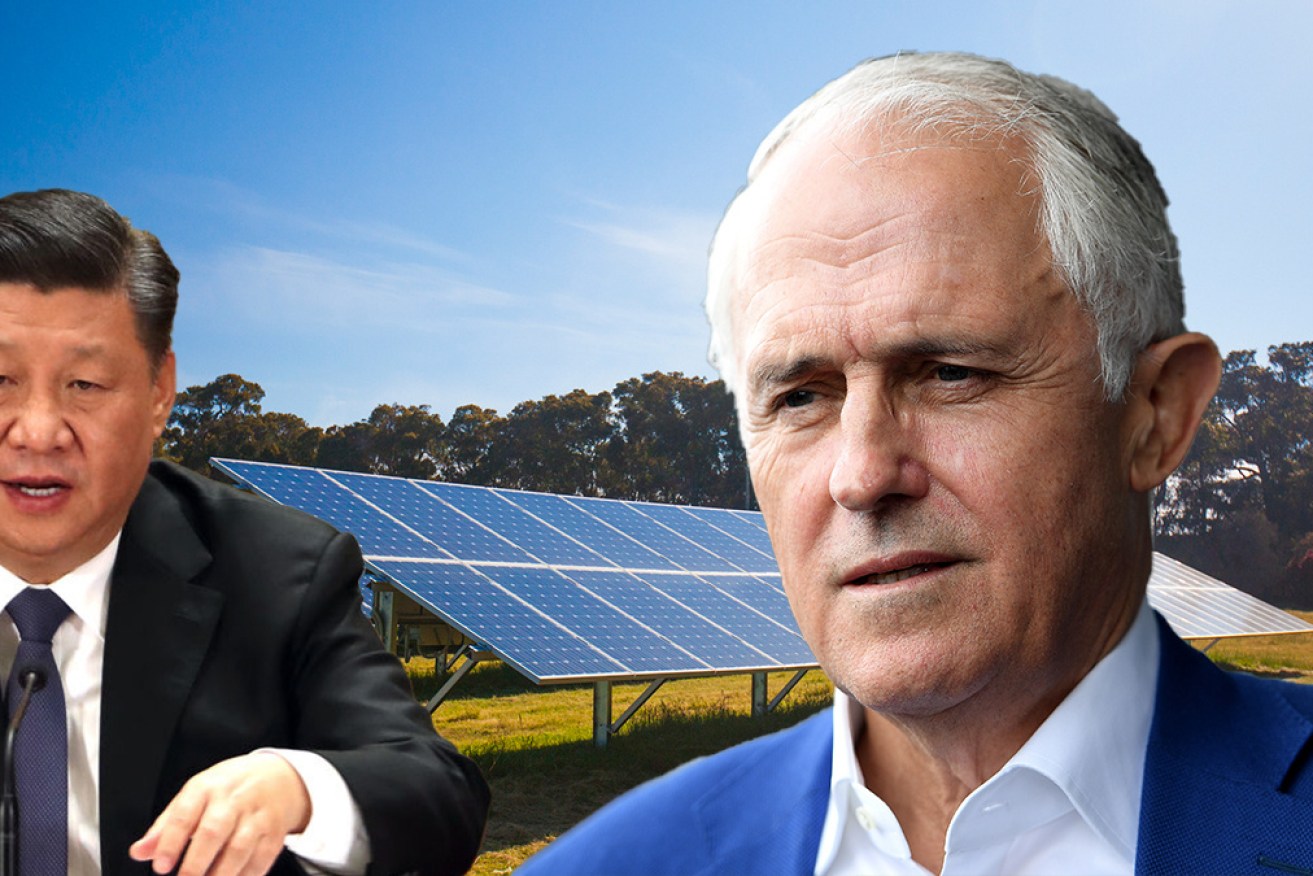China’s net-zero target will boost renewables investment around the world, says Turnbull


China's net-zero target will boost investment in renewables around the world, says Malcolm Turnbull. Photo: TND
China’s decision to target carbon neutrality by 2060 will deliver a big boost to the global fight against climate change, former prime minister Malcolm Turnbull has said.
In a panel discussion with UN Special Envoy on Climate Action and Finance Mark Carney, Mr Turnbull said many would doubt China’s ability to meet the target, given it is the world’s largest consumer of energy and largest emitter of carbon.
But he said its political system lent itself to fast action on climate change.
“If any country can do it, it’s China,” he told the Global Smart Energy Summit hosted by the Smart Energy Council.
“It is a very authoritarian system there, and their ability to turn things around and mobilise capital and people is without peer anywhere else in the world.
“So … yes, it will drive more investment in renewables in China – and that will support investment around the world.”
Closer to home, Mr Turnbull said the only obstacle to Australia’s transition to cleaner energy was the uncertainty surrounding the nation’s energy policy.
He said one of the world’s largest investors in renewable energy told him “not so long ago that they would not invest in Australia because of the political uncertainty, [and] they found China a more attractive and stable environment for investment”.

Energy Minister Angus Taylor is touting a gas-led recovery. Photo: AAP
The former PM warned that the European Union could punish Australia for dragging its heels on climate change by introducing a carbon tax on its exports.
“It could be quite attractive [to the EU]. It might even be used to impose a bit of, you know, mild protectionism,” Mr Turnbull said of the so-called Carbon Border Adjustment Mechanism.
“We absolutely have to face the prospect of, in effect, the carbon tax at the frontier, and I think the Europeans are absolutely up for it. I think [French] President [Emmanuel] Macron has made that very plain.”
In her first State of the Union Address, delivered on September 16, European Commission president Ursula von der Leyen raised the EU’s 2030 emissions reduction target from 40 per cent lower than 1990 levels to 55 per cent lower than 1990 levels.
Describing the target as “ambitious, achievable, and beneficial”, Dr von der Leyen said the trading bloc was also working on a carbon tax on imports, to “motivate foreign producers and EU importers to reduce their carbon emissions”.
A day before she addressed the EU, the Morrison government said it would build a gas-fired power plant in the Hunter Valley, NSW, if the private sector refused to do so.
Minister for Energy and Emissions Reduction Angus Taylor said a replacement for AGL’s soon-to-be-retired Liddell power station was needed “to ensure a reliable and affordable energy system”.
But, echoing similar concerns raised by investors and opposition MPs, Mr Turnbull said the government’s plan was “bonkers”.
“There are people who are trying to persuade the government to literally spend billions and billions of dollars to pay for infrastructure to, in effect, subsidise gas,” he said.
“And that is what is bonkers, because it is a transitional fuel, and we run the real risk [of] funding what will become, inevitably, stranded assets.”
The International Energy Agency defines stranded assets as “those investments which have already been made but which, at some time prior to the end of their economic life, are no longer able to earn an economic return”.
Renewables plus storage
Mr Turnbull said the cheapest form of new energy generation was renewables plus storage, and cited the findings of the Australian Energy Market Operator (AEMO)’s Integrated System Plan.
Among other things, the report acknowledges that Australia “will need new flexible, dispatchable resources” to compensate for the inherently variable nature of renewable energy.
But although gas can perform this role at a lower cost than batteries today, the report says “in the 2030s when significant investment in new dispatchable capacity is needed, this advantage could shift to batteries, especially to provide dispatchable supply during two- and four-hour periods”.
“For [gas-powered generation] to remain a competitive investment as battery costs reduce (to $922/kW by 2030), gas prices need to be as low as $4/GJ in the long run, while charging costs need to remain relatively high at $30/MWh,” the report found.
“Even in 2019-20, four-hour batteries would have been able to charge at an average price below $30/MWh in all regions except New South Wales.”








